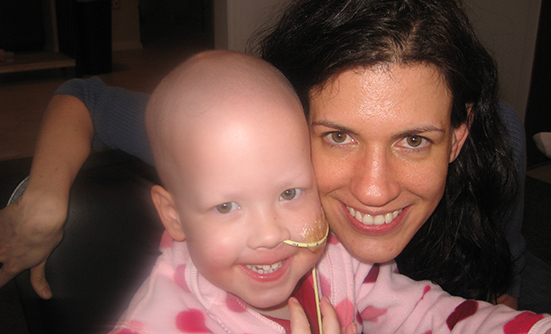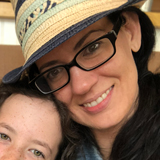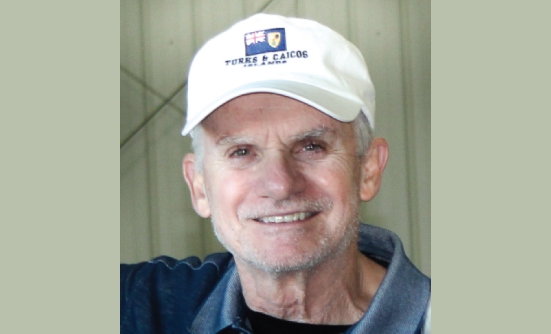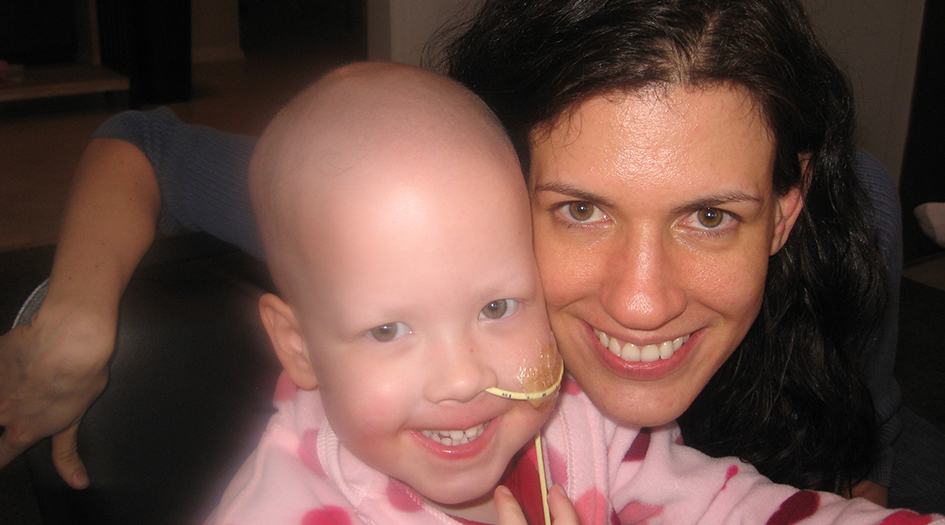
“Your child has cancer.” These are the words no parent ever expects to hear, and for which no one is ever prepared. This is never covered in parenting 101 classes, Lamaze, or in any groups for moms of newborns. As new parents, we are bombarded with books, videos, blogs, and websites on how to protect our children. We are given information on when to vaccinate our kids, childproof our home, and securely latch a car seat, but never on how to get through cancer. “Cancer,” a word that strikes terror in grown people, is now terrorizing the very child we have spent our life protecting.
When I first heard those words in 2009, I felt as if I was having an out-of-body experience. Nothing could have prepared me for the shock. It was a few weeks before I felt reconnected to my body again, and when it all sank in. I don’t think it matters if you’ve had an ill child and it took weeks or even months to get an actual diagnosis (as in our case), or if you went to the doctor one morning with a random illness and found out that same day it was cancer. We are never prepared. Life as we know it will never be the same. We are thrown into a world, which for most of us, we have only ever seen on a telethon or TV commercial—smiling bald kids who have cancer. Other people’s kids. Not ours. I will never forget the first time I saw a bald kid in person. It seemed surreal. Two years later, when my daughter’s hair finally started growing back, it was the kids with hair who looked weird to me. That’s what childhood cancer will do; it changes your perspective.
My daughter was 3 years old at the time and was diagnosed with stage IV high-risk neuroblastoma (a sticky tumor). Today, she is a vibrant, healthy, strong-willed 12-year-old child entering 7th grade (with some pretty wild, curly, and sometimes pink-tipped hair)! Although she was diagnosed 9 years ago, I still remember this as if it were yesterday. That’s what shock will do, I guess.
As I sat down to write this article, I thought about what I wish I had known back then, when she was first diagnosed, and we were being initiated into the “childhood cancer club.” What were the things I did that helped us navigate through that scary time? What do I wish I would have done differently?
The following items emerged from my thought process. Think of this as my top 10 tips to parents’ survival!
1. Start a gratitude journal. It’s easy, cheap, and can help you focus on what’s going well each day. Acknowledging something as simple as a friend bringing over dinner, a lab draw going well, or being 1 day closer to finishing treatment can help shift your mindset. This was the number one thing I did that made a difference in how I experienced my daughter’s cancer. Writing about our cancer journey changed my heart, my head, and my life.
Read "The Healing Power of Writing About Cancer"
2. When people offer to help, let them. If you are anything like me, this may be the most difficult item on this list. I was always quick to say, “Oh, it’s okay, I don’t need anything.” I felt like people were just offering it as a way to be nice, or out of obligation. Only later was my perspective changed. Having a support system is critical in coping with cancer. Let family, friends, members of your community, and co-workers provide you with assistance in any way they can. Help can come in the form of big things, such as staying with your child overnight at the hospital or covering a work shift; or small things, such as picking up your dry cleaning or pulling your trash bins to the curb. Let people help! I remember one time a friend asked me what I needed. We had been at the hospital for weeks straight. I shyly confided that I needed tweezers and clean socks. She was happy to come to the rescue, and my eyebrows and feet were most grateful.
Read "6 Strategies for Coping with Cancer"
3. Get over it. Your life is going to look different for a while. Childhood cancer is a family affair. No one is unaffected. Your normally clean house, mowed lawn, and folded laundry may look unrecognizable for a while. In the chaos that is childhood cancer, be grateful if you and your family are at least wearing clean underwear. Take a season to be easy on yourself. I had to stop trying to pretend I had it all together. It was a relief when I finally allowed myself to realize I couldn’t be all things to all people. Prioritize what is most important, and you’ll find it usually isn’t things—it’s people.
4. It’s okay to laugh. Often, a childhood cancer diagnosis turns our world (and our child’s world) into a dark, somber, and morbid place. Laughter is replaced with tears, smiles with frowns, and giggling with sobbing. It has been said that “Laughter is the best medicine,” so find a reason to laugh, be silly, and get your child to giggle. It will make your hospital room and your spirit a little lighter. I literally became a full-time cancer-fun-maker. Getting my kid to giggle was my number one priority.
5. Make a family goal poster. Include treatment dates. Examples include completing a certain number of chemo sessions or an upcoming surgery date. Add fun things you want to do together, a special vacation, an upcoming holiday to celebrate, or a school graduation. Have things to which you can look forward to as a family. With the uncertainty of childhood cancer, a goal poster can keep us focused on the future with positive expectations instead of dread. My daughter had a feeling of success as she crossed off each milestone, and it helped her understand how far she had come, and what she still had left to do.
Read "Don’t Allow Cancer to Derail Your Future"
6. Pray, meditate, visualize, or find a way to connect with your spirit. Mindfulness has a multitude of benefits, emotionally and physically. If you go to religious services, try to continue to attend them as best you can. Read your Bible or religious book of choice. Stay connected with people who share your faith, and ask them to pray for you. Caring for your spirit refills you, so you can care for your child. As a Christian, I embraced the concept that God doesn’t give you what you can handle. God allows you to have what you can’t handle, so you have to rely on Him.
7. Eat well. This is one of those, “Do as I say, not as I did,” moments. I think I survived on coffee, Oreos, and Swedish fish. It’s definitely hard when you are living on hospital cafeteria food, but I wish I had made more of an effort to eat a salad or at least a piece of broccoli.
8. Exercise. This was another area where I wish I had done better! Exercise helps to reduce stress, increases serotonin, and helps to combat the Oreos and Swedish fish. It also increases our energy level, something we surely need as parents! Some hospitals even have relationships with local gyms, which may offer you a discounted rate. It’s worth asking!
9. Filter what you tell people. Just because someone asks you something, doesn’t mean you have to answer it. I purposely chose not to tell people that my daughter had stage IV cancer. I knew people would equate that with a death sentence, and I didn’t want to deal with their reaction. It didn’t matter to me if she had a 1% survival rate, I would still be praying she was that 1%! How much you want to disclose about your child’s cancer, family situation, or personal struggles is up to you. I would encourage you to have a family conversation ahead of time, so that everyone is on the same page and knows how much information each person is comfortable sharing.
10. Get a stack of pre-stamped Thank You cards, and keep them with you at all times.
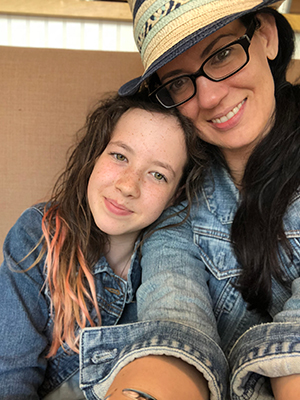
There you go! Maybe one idea will work for you, or maybe all 10. There is no “right” or “wrong” way to get through childhood cancer. We simply all hang on and do the best we can. The stronger we are, the stronger our children can be. After all, they are the ones who inspire us with their strength. We just look tough—they actually are tough.
Do you have something to add to this parent survival guide? Share it with CONQUER: the patient voice!
Tara Geraghty is the author of Making Cancer Fun and other books aimed at helping children cope with their diagnoses.





